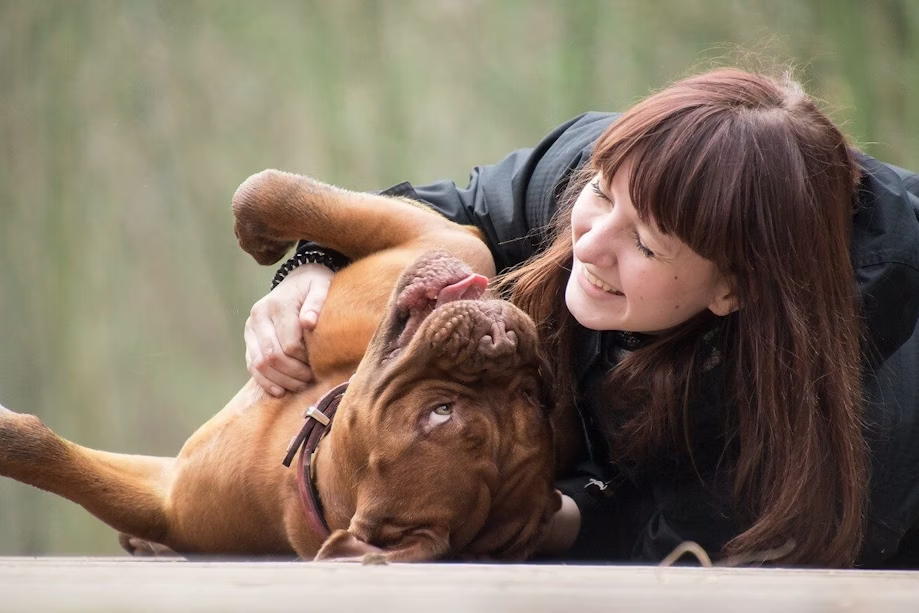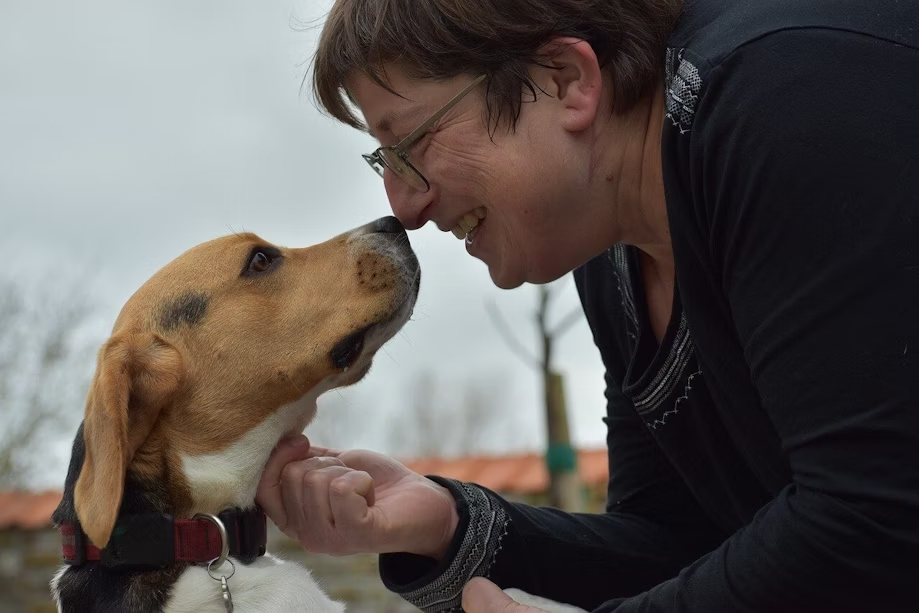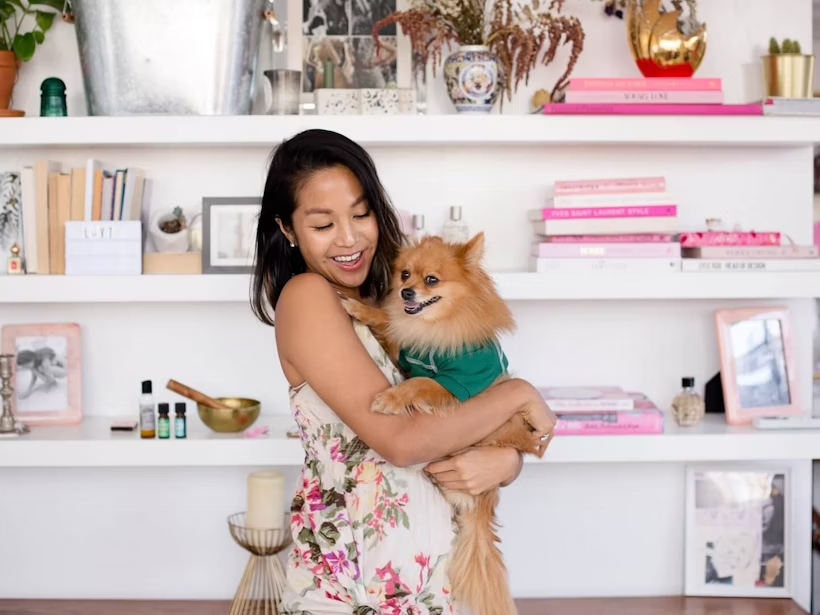Does your dog attentively watch your every move while ignoring whatever the rest of the family is doing? Do they greet you each morning as though they haven’t seen you in weeks? Do they follow you wherever you go—even into the bathroom? 😅
If so, you’re probably your pup’s favorite person. (Congrats!)
But why do pups play favorites? And if your dog doesn’t choose you, is there anything you can do about it?
Keep reading to find out.
5 ways dogs choose their favorite humans
1. Early-life bonding
The experiences a puppy has in their first few months of life (known as the socialization period) have an oversized impact on their development. As a result, dogs typically form strong, lifelong bonds with whoever feeds, plays, and generally cares for them most often during this critical time.
In cases where the person they bonded with is no longer around, a dog may still show favoritism toward people that are similar to them. For example, if their primary caregiver in puppyhood was a man, they may seem to like men more than women—even if their new human parent is a woman.
Worried your adult dog may have been socialized to prefer someone else? The next factor can help you win your dog’s favor.

2. Time, attention, and affection
Dogs tend to build close ties with people who show them the most attention (e.g., feeding, training, playing) and love. And remember, quality is more important than quantity here.
Binging Netflix together and other passive activities will have less impact on your relationship than an engaging game of fetch or a challenging training routine. If you’re not sure which activities your dog would find meaningful, check out our breed-based guide about speaking your dog’s love language.
3. Positive associations
You’ve probably heard the phrase, “what gets rewarded gets repeated.” This statement is as true for building rapport with your dog as it is for teaching them new tricks. There’s a reason veterinarians are often quick to give out dog biscuits—they’re trying to create goodwill because what happens during the rest of the visit may not be very pleasant.
Getting your dog to associate you with good things can be as simple as always having a tasty treat on hand when you greet them. You should also limit negative interactions, such as harsh discipline or scolding. (Besides, most dogs respond much better to positive reinforcement.)

4. Personality alignment
Have you ever noticed dogs often resemble their owners in some way? This is more than a coincidence—it’s a proven fact that people tend to choose dogs that are physically similar to them in some way.
Oddly enough, the same is valid for personality. Dogs and the people they love to spend time with frequently have similar dispositions. For instance, a Golden Retriever might jive best with an extroverted, energetic person. But a Basset Hound would likely feel more comfortable with someone who is more aloof or quiet.
Just like for human relationships, the more you have in common with a dog, the more likely you are to become close friends.
5. Breed tendencies
While we’re on the topic of personality… let’s talk about breeds. Throughout history, dogs have been bred to do specific jobs—from controlling pests to guarding property. As such, pups often differ in their temperament based on their ancestry. This impacts what kind of pets they make, as well as how they form relationships with humans.
For example, breeds that tend to have clear favorites include:
Whereas breeds that seem to love just about everybody equally include:
Vying to be your pup’s #1 human?
Consider learning more about their breed background with a Wisdom Panel™ DNA test. The insights you’ll gain will allow you to tailor training and care to your dog’s unique needs and preferences—helping you build your special bond.
Learn More
